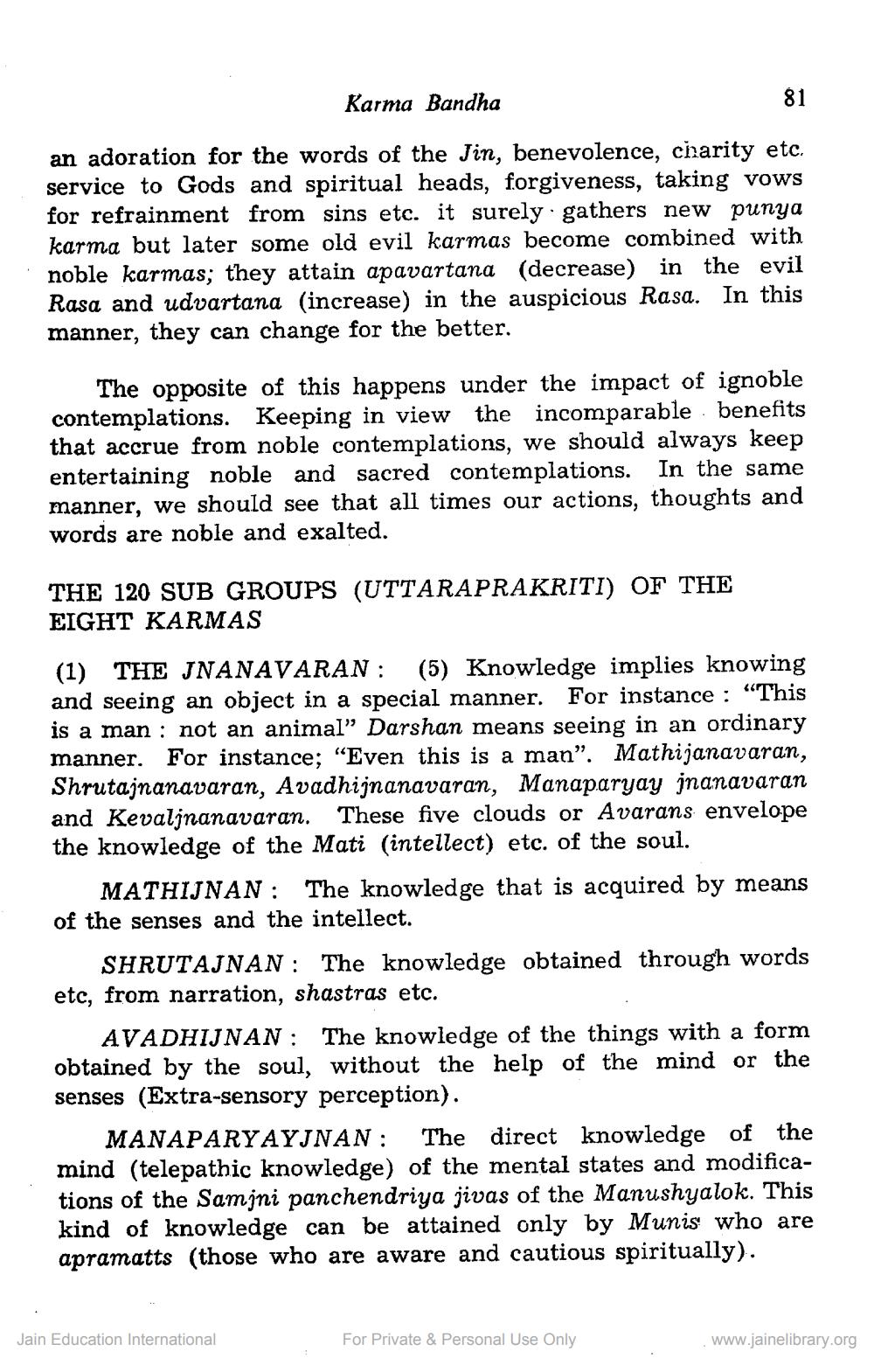________________
Karma Bandha
81
an adoration for the words of the Jin, benevolence, charity etc. service to Gods and spiritual heads, forgiveness, taking vows for refrainment from sins etc. it surely gathers new punya karma but later some old evil karmas become combined with noble karmas; they attain apavartana (decrease) in the evil Rasa and udvartana (increase) in the auspicious Rasa. In this manner, they can change for the better.
The opposite of this happens under the impact of ignoble contemplations. Keeping in view the incomparable benefits that accrue from noble contemplations, we should always keep entertaining noble and sacred contemplations. In the same manner, we should see that all times our actions, thoughts and words are noble and exalted.
THE 120 SUB GROUPS (UTTARAPRAKRITI) OF THE EIGHT KARMAS
(1) THE JNANAVARAN : (5) Knowledge implies knowing and seeing an object in a special manner. For instance: "This is a man not an animal" Darshan means seeing in an ordinary manner. For instance; "Even this is a man". Mathijanavaran, Shrutajnanavaran, Avadhijnanavaran, Manaparyay jnanavaran and Kevaljnanavaran. These five clouds or Avarans envelope the knowledge of the Mati (intellect) etc. of the soul.
MATHIJNAN: The knowledge that is acquired by means of the senses and the intellect.
SHRUTAJNAN: The knowledge obtained through words etc, from narration, shastras etc.
AVADHIJNAN: The knowledge of the things with a form obtained by the soul, without the help of the mind or the senses (Extra-sensory perception).
MANAPARYAYJNAN: The direct knowledge of the mind (telepathic knowledge) of the mental states and modifications of the Samjni panchendriya jivas of the Manushyalok. This kind of knowledge can be attained only by Munis who are apramatts (those who are aware and cautious spiritually).
Jain Education International
For Private & Personal Use Only
www.jainelibrary.org




